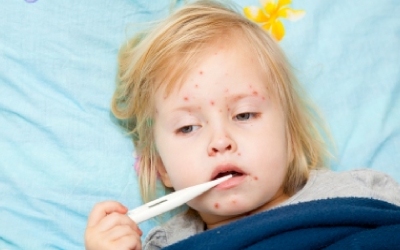Following on from the recent measles epidemic in South Wales, doctors in the UK have warned that the wellness of millions more children may be at risk from the disease. It is thought that this is as a result of a (now completely discredited) study that was published over a decade ago, which wrongly linked the combined Measles, Mumps and Rubella jab (MMR) with the development of autism.
This led many parents to refuse the vaccine, putting their children at risk of developing the diseases, as well as reducing the ‘herd immunity’ that protects the wellbeing of young children who are not old enough to receive the vaccine, and others who have compromised immune systems, such as the elderly.
These unvaccinated children are now teenagers in secondary schools across the country, and teenagers are unfortunately one of the highest risk groups (after infants) for developing the not uncommon and extremely serious side-effects of measles, such as sight loss, hearing loss, pneumonia, brain damage and even death.
Measles is highly contagious, and usually appears as a high fever alongside a rash. Clinics are now being opened up in affected areas, offering those who were misled into distrusting the vaccine the first time around the chance to protect their family wellness. The MMR is usually given in two doses: the first dose provides around 90% protection, and the second dose – delivered a couple of years later – boosts this to around 95% protection.
Uptake for the vaccine is generally high now, at around 91% of parents choosing to protect their young children, but there is still the gap where this missing generation have not been vaccinated, and this is what ministers and doctors are attempting to now mitigate.
Doctors point out that vaccination is not simply a case of protecting your own child (who, if they are healthy and robust, may fight off the disease reasonably well, albeit with discomfort) but protecting the more vulnerable members of society, such as children with leukaemia, who cannot receive the vaccine and rely on others not allowing the disease to spread.
